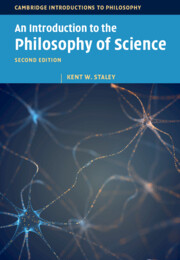Refine search
Actions for selected content:
231 results
Chapter 10 - Temperance
- from Part IV - Virtues of Indirect Caring
-
- Book:
- Attention to Virtues
- Published online:
- 25 July 2025
- Print publication:
- 14 August 2025, pp 238-258
-
- Chapter
- Export citation
Chapter 12 - Practical Wisdom and the Rationality of Emotions
- from Conclusion
-
- Book:
- Attention to Virtues
- Published online:
- 25 July 2025
- Print publication:
- 14 August 2025, pp 299-318
-
- Chapter
- Export citation
Chapter 3 - A Complex Model of Action: What Is Ruling?
- from Part II - Motivational Challenges to Self-Rule
-
-
- Book:
- Platonic Autonomy
- Published online:
- 07 August 2025
- Print publication:
- 31 July 2025, pp 58-80
-
- Chapter
- Export citation
Chapter 4 - Dialectic and Rational Agency
- from Part III - Internal and External Authorities
-
-
- Book:
- Platonic Autonomy
- Published online:
- 07 August 2025
- Print publication:
- 31 July 2025, pp 83-105
-
- Chapter
- Export citation
Why is praying for the past wrong?
-
- Journal:
- Religious Studies , First View
- Published online by Cambridge University Press:
- 23 April 2025, pp. 1-15
-
- Article
-
- You have access
- Open access
- HTML
- Export citation
Chapter 3 - Manipulation: The Anatomy
- from Part I - The Concept
-
- Book:
- The Concept and Ethics of Manipulation
- Published online:
- 10 April 2025
- Print publication:
- 17 April 2025, pp 79-116
-
- Chapter
- Export citation
4 - Rationality
- from Part II - Legal Controls
-
- Book:
- Combatting the Code
- Published online:
- 26 March 2025
- Print publication:
- 03 April 2025, pp 47-73
-
- Chapter
- Export citation

An Introduction to the Philosophy of Science
-
- Published online:
- 29 March 2025
- Print publication:
- 27 March 2025
-
- Textbook
- Export citation
5 - Postpositivist Views on Scientific Progress and Rationality
- from Part I - Background and Basic Concepts
-
- Book:
- An Introduction to the Philosophy of Science
- Published online:
- 29 March 2025
- Print publication:
- 27 March 2025, pp 51-92
-
- Chapter
- Export citation
A simplified test for preference rationality of two-commodity choice
-
- Journal:
- Experimental Economics / Volume 9 / Issue 1 / April 2006
- Published online by Cambridge University Press:
- 14 March 2025, pp. 67-75
-
- Article
- Export citation
On the Behavioral Foundations of the Law of Supply and Demand: Human Convergence and Robot Randomness
-
- Journal:
- Experimental Economics / Volume 5 / Issue 3 / December 2002
- Published online by Cambridge University Press:
- 14 March 2025, pp. 179-208
-
- Article
- Export citation
The distributional preferences of Americans, 2013–2016
-
- Journal:
- Experimental Economics / Volume 26 / Issue 4 / September 2023
- Published online by Cambridge University Press:
- 14 March 2025, pp. 727-748
-
- Article
- Export citation
Circadian effects on strategic reasoning
-
- Journal:
- Experimental Economics / Volume 15 / Issue 3 / September 2012
- Published online by Cambridge University Press:
- 14 March 2025, pp. 444-459
-
- Article
- Export citation
Barking up the right tree: Are small groups rational agents?
-
- Journal:
- Experimental Economics / Volume 9 / Issue 3 / September 2006
- Published online by Cambridge University Press:
- 14 March 2025, pp. 209-222
-
- Article
- Export citation
A caveat for the application of the critical cost efficiency index in induced budget experiments
-
- Journal:
- Experimental Economics / Volume 18 / Issue 3 / September 2015
- Published online by Cambridge University Press:
- 14 March 2025, pp. 356-365
-
- Article
- Export citation
Learning to Open Monty Hall's Doors
-
- Journal:
- Experimental Economics / Volume 6 / Issue 3 / November 2003
- Published online by Cambridge University Press:
- 14 March 2025, pp. 235-251
-
- Article
- Export citation
8 - Are Moral Judgments Rational?
- from Part II - Thinking and Feeling
-
-
- Book:
- The Cambridge Handbook of Moral Psychology
- Published online:
- 20 February 2025
- Print publication:
- 27 February 2025, pp 172-197
-
- Chapter
- Export citation
Standard rationality versus inclusive rationality: a critical assessment
-
- Journal:
- Behavioural Public Policy / Volume 9 / Issue 3 / July 2025
- Published online by Cambridge University Press:
- 03 February 2025, pp. 530-544
-
- Article
-
- You have access
- Open access
- HTML
- Export citation
Introduction
-
- Book:
- Schopenhauer's Politics
- Published online:
- 09 January 2025
- Print publication:
- 23 January 2025, pp 1-22
-
- Chapter
-
- You have access
- Open access
- HTML
- Export citation
2 - The Metaethics of Worship
- from Part I - Two Introductions
-
-
- Book:
- The Philosophy of Worship
- Published online:
- 09 January 2025
- Print publication:
- 23 January 2025, pp 16-28
-
- Chapter
- Export citation
